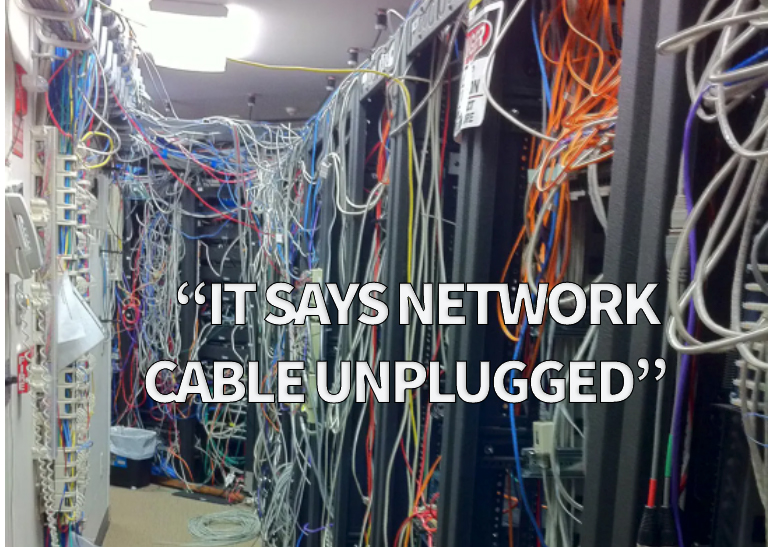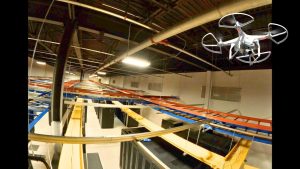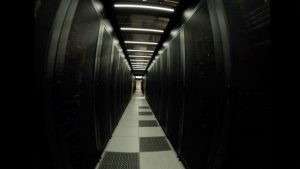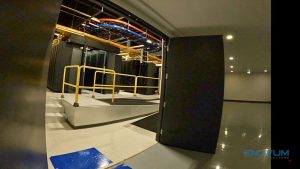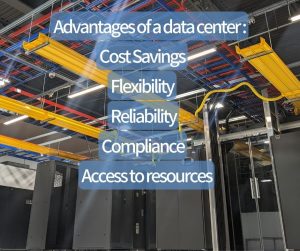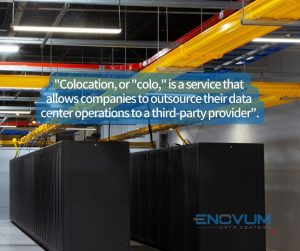During the early wave of internet development, it was very common for companies to host their servers in-house. Corporations used their on-premises location to set server rooms.
Setting up servers required hardware, infrastructure, and maintenance solutions. In most cases, companies used their own infrastructure, installing an in-house server room was seen as a way to cut costs. Companies were under the impression that they were paying less. However, whatever meets the eye is not always true.
Is hosting in-house servers a good idea?
Let us give you a few reasons on why a data center not only simplifies your life as a business but also saves you money.
Why is hosting in-house servers not a good idea?
This method is not scalable. The most obvious thing about running a server-based network is the increased cost. While manufacturers often offer reasonably priced hardware warranties, they usually wash their hands off any software issues. There are other issues related to the infrastructure that are equally a concern. Most of the time you will be limited to the below-mentioned constraints:
- Space: While there was space you could install some servers. What happens when infrastructure shrinks? Considering the kind of space that physical servers require, finding more space to add more servers can become a headache and cost-centric in the long run. You would have to buy space or pay rent for accommodating more servers and equipment. Thus increasing your operational cost.
- Cooling: It is essential that you provide sufficient cooling to ensure reliable running of servers, routers, switches, and other critical equipment. Failure of doing so can have serious consequences leading to more expenses.
- Electrical Constraint: Even if you are able to accommodate batches of servers to be installed, think about the amount of money you would have to spend on electrical equipment? You would need to have a suitable electrical entrance, supported by UPS, generators, switching equipment and many more. The amount would always increase with new installations. And not to forget the maintenance cost involved all along.
- Time: time is money and setting up an in house server room is notoriously time consuming. You could need permits, plans and certifications during the construction phase, and you will need to manage the facility once it is commissioned. It requires human and material resources.
- Internet: whether you are at home or at the office, downtime is an all too common occurrence. An overloaded server creates serious problems in accessing information. In a professional data center, the infrastructure consists of redundant and multiple fiber paths which are used by scores of internet service providers. There is no downtown.
- Cost: maintaining in house servers and setting them up has a significant cost.
- Monthly and yearly maintenance services on all your servers
- Implementation of the electrical entrance, redundant generators and UPS (most data centers are 2N designed)
- Consulting fees for engineers and consultants
- Acquiring permits
- Training staff to operate the space safely, health and safety management
-
Security: this is another essential aspect that has to be addressed in a server room. It includes:
-
Your data needs to be protected 24/7
-
Most commercial buildings are equipped with standard water sprinklers and smoke detectors. But what if a sprinkler accidently starts in a server room? The damages can be significant. It is the reason why most data centers use pre-action equipment that minimize the risk of such accidents.
-
Unlike private server rooms, data centers commonly have an early detection system, such as VESDA, that reduces the risks of downtime significantly.
-
With the rise of ransomware and data leaks, internal and external threats should be considered by private businesses. There is hardly any control over who comes in and out of a private server room. Data centers strictly monitor who gets in and out of their facility.
-
It would be fair to say that on-premises server rooms are a thing of the past: data centers cost less and they simplify IT operations in a significant way.
Colocation data center solutions are alternatives that should be considered if simplicity and savings are in your mind.
What are colocation services in a data center?
A colocation data center, also known as “colo”, is a large data center facility renting out rack space to third parties for their servers or other network equipment.
In this type of arrangement, servers and equipment from different companies are hosted in one data center. In most cases the hardware is owned by the companies. They are hosted and maintained by the data center staff.
The benefits of colocation in a data center are significant. Data center colocation services offer the following:
- Lower cost: Building and managing your own technological infrastructure is expensive. Using colocation services in a data center will reduce your cost significantly every month.
- Less technical staff: When you choose to use colocation solutions in a data center, you do not have to worry about energy consumption, equipment installation, or cooling. Data centers have on site IT technicians to help their clients.
- Reliability: Data centers offering colocation services are built with the highest specifications for redundancy. This includes excellent physical security, backup power generators, multiple network connections through more than one telco, and more.
- Predictable expenses: Perhaps one of the most significant aspects of shifting to colocation services in a data center is the fact that you know in advance how much it will cost you. You can sign contracts for one or more years as per convenience.
- Geographic location: a data center offering colocation services gives you the option to choose the location of your technological infrastructure, so you can locate them near your users.
- Easy scalability: when you are scaling your business, you can easily add new servers or equipment without major investment and delays. A server closet in house will not give you that level of flexibility.

